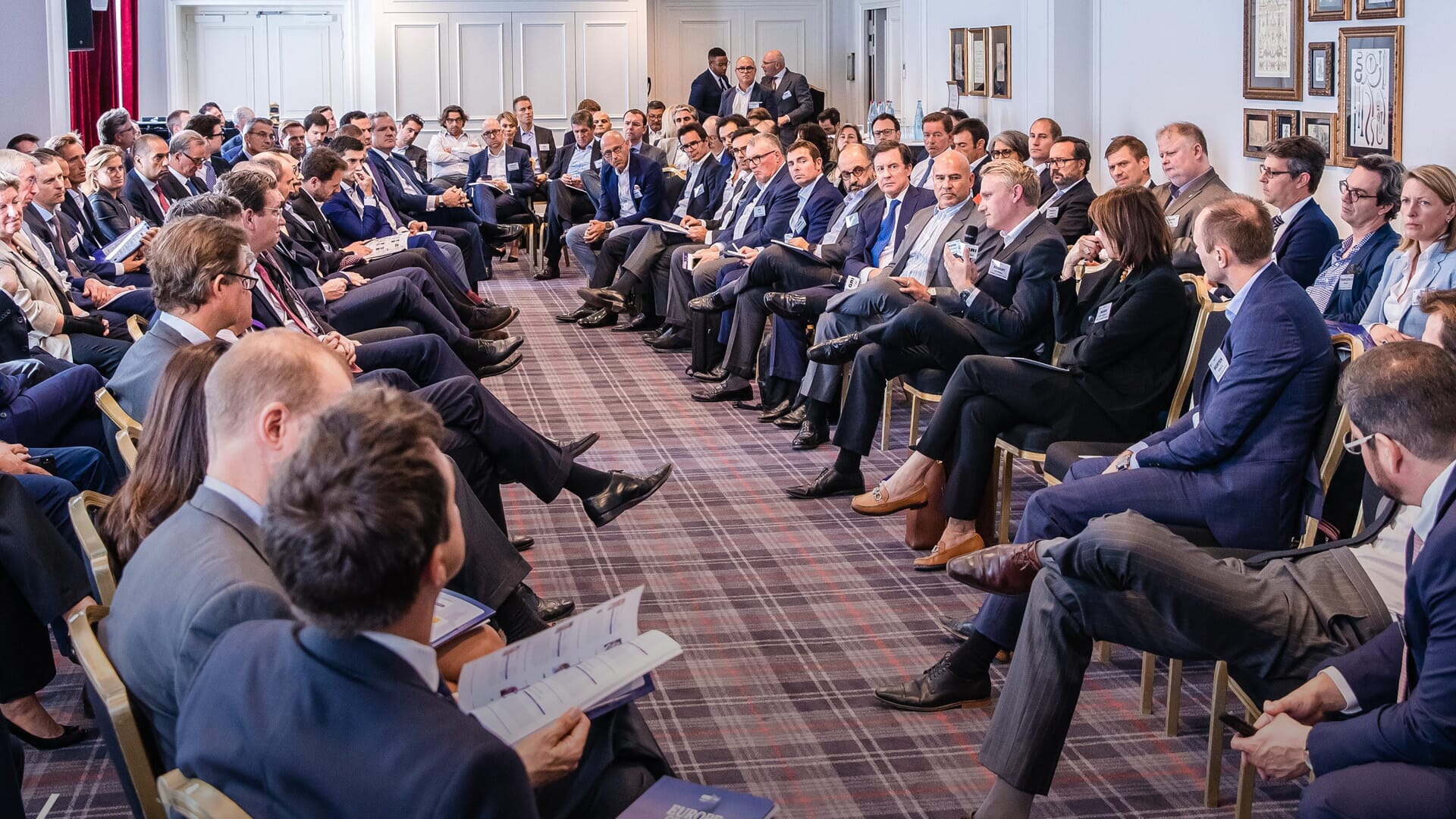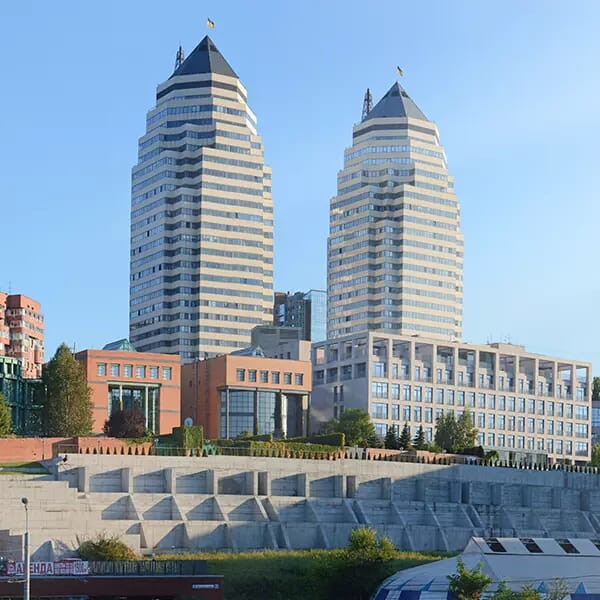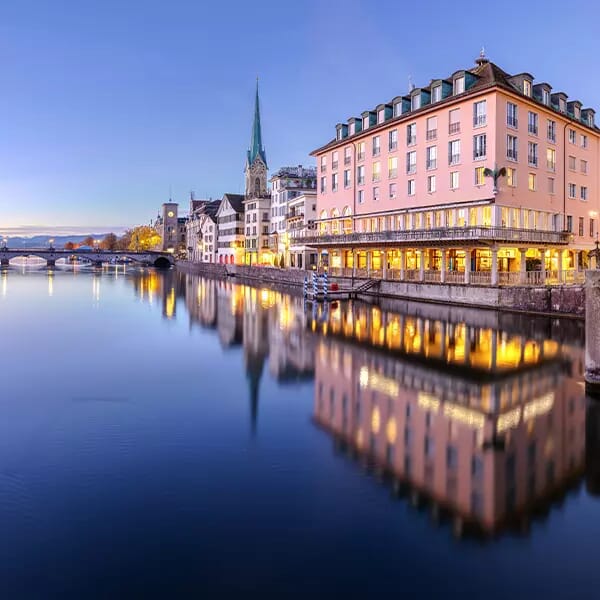 No attribution required
No attribution requiredEurope GRI 2019 - The Key Takeaways
Europe GRI gathers the globes leading real estate developers, lenders and investors active in the continent.
Over 450 real estate leaders gathered for Europe GRI 2019 on the 11th and 12th of September in Paris, for a series of provocative discussions on the years hottest topics in real estate. The event also included great opportunities for the most senior investors, developers, operators and financiers in Europe to network with other GRI club members and delegates.
The 35+ sessions invited all attending members to contribute to the conversation in a candid and ‘living-room’ atmosphere type setting. The questions were designed for the attendees of the event to share market insight and build meaningful relationships with the most powerful players in the industry. Here are some key takeaways from the discussions:
Offices - Technology's foray into real estate
-
In Europe’s largest cities, tech companies now occupy more office space than banks. This is a radical shift from a decade ago. Because of the nature and the average age of those working at tech start-ups, offices are expected to be more tech-savvy, modern and with more amenities.
-
63% of offices now employ some sort of technology which has become central to their business practice
-
Ubiquitous growth in co-working has resulted in a dip in required space per employee. This has also resulted in operators competitively lowering lease durations, which will become even more popular in a potential downturn. In fact, many describe office assets as the most resilient to any sort of crunch or natural market correction.
-
Periods of political turmoil seem to have no effect on the office market, indicated by the figures in London and Barcelona. The popular view is that people still need to work and companies still need to employ, regardless of economic change.
Logistics - Growing too quickly?
-
Warehousing has experienced a strong growth in demand, especially for 50,000 to 100,000 sqm sites to match the rise of e-commerce. These sites are often specifically built for Amazon and very hard to repurpose, which might present a problem if they pack up and leave after a 10 year lease.
-
Profit margins rely heavily on optimisation and efficiency, in which technology and scale is crucial. Innovation in the 21st century has been unprecedented and moved incredibly quickly, so the market will likely be heavily enabled as drone/AI technology starts becoming readily available.
-
Investors look at demographics to predict how well a logistic asset will do.The most common one used being nearby 18-25 year olds, which are more likely to have goods delivered.
Residential - Traditional home-ownership losing altitude as mixed use, BTR and coliving soar
-
In England especially we’re seeing a trend of 18-25 year olds financially unable to own their own homes. This is resulting in heavy migration away from expensive cities, and multigenerational housing. House-sharing and build-to-rent expected to increase as the UK housing crisis continues.
-
Construction costs are currently the deciding factor in a lot of residential developments across Europe. Low costs are incentivising a lot of new projects in Italy, while high construction costs in Germany is the main reason for the shortage of housing.
-
European residential is seeing rising investment value due to competition between tenants. The student housing market in the biggest cities is evidence of this, due to the lack of supply.
Hospitality - Real estates end game?
-
In the last 20 years we’ve seen hotels become extremely innovative to stay relevant. Hotels in 2019 that don’t have online check-in, RFID keys or free WiFi perform considerably worse compared to their more modern counterparts. Technology is only half the battle though; the most technologically advanced hotel is nothing without a good location, strong brand and competitive prices.
-
Some have suggested that the end game for all asset classes are the type of services that hospitality offer, as consumers in residential and commercial are copying the amenities/customer service models from hotels and restaurants.
-
Operational business models vary drastically from project to project, and often focus on the relationship the owners have with the operators. Operators always focus on branding and customer satisfaction, while owners always take on the financial risk - yet how much either decide to actively engage with the hotel from project to project differs.
Retail - A distant memory or the future of leisure and placemaking?
-
The rise of e-commerce and Amazon has irretrievably disrupted the retail market for good. Questions are often raised suggesting the death of the high street, and whether or not physical retail will even exist in 30 years time. People in the retail real estate business assert that physical retail will always remain relevant, but will have to adapt itself into a different kind of asset in order to perform well. We’re seeing this with more knowledgeable sales assistants and also more leisure offerings in shopping centres, which both aim to provide a more valuable experience than simply ordering something at home.
-
There is a trend sweeping Europe of retailers favouring prime locations for their flagship stores over taking lower rents from B streets. From London to Paris to Madrid, we’re seeing retailers taking lower yields just for a spot on the main streets, mostly for recognisability and marketing.
-
Retail development for place making has proven to be quite lucrative for those willing to take the risk. The risk being that shops are built in the middle of nowhere, then have residential and commercial built around them to create value in a new area.
Real estate market trends - Foreign investment better than ever
-
Day two of Europe GRI began with a keynote speech from Laurent Clavel, Head of Research at AXA. Laurent explained, that Europe adopting more Asian economic policies, as well as aging demographics and the maturities of some markets are perhaps setting us on course for negative interest rates.
-
Inward investment into Europe at the moment is strong. The biggest source of this currently is South Korea, as they’ve currently sank a record amount (over EUR5 billion) in European core office this year. The Americas and Asia currently view the Continental European real estate market as a safe and stable means of investing, especially considering challenges such as the current US-China trade war.
-
Many investors believe that despite Brexit, London will remain the centre of commerce because of its infrastructure, opportunities and it’s city-full of talented and career focused middle class. However this has an undeniable impact on investment, as many investors are adopting a “wait and see” approach.
-
We’re currently seeing more of a focus on value-add and opportunistic investment, and less on long-term plans. Efficiency and flexibility are the main criteria.
-
Investments in hotels and residential rental property surpassed investments in office and retail.
-
Non-domestic investing is being aimed at more “immature” countries and markets. CEE has developed quickly because of this, especially in Poland and Romania. 91% of investment in Portugal came from overseas.
Our sectoral events are still available to book, as there are opportunities for more specialised and tailored discussions on Light Industrial & Logistics, Offices and Residential for the most senior, C-level players in the real estate market. GRI Light Industrial & Logistics Europe 2019 takes place on 6-7 November in Amsterdam, and GRI Offices 2019 and GRI Residential 2019 take place on 19-20 and 26-27 in London, respectively.
Article by Matt Harris


